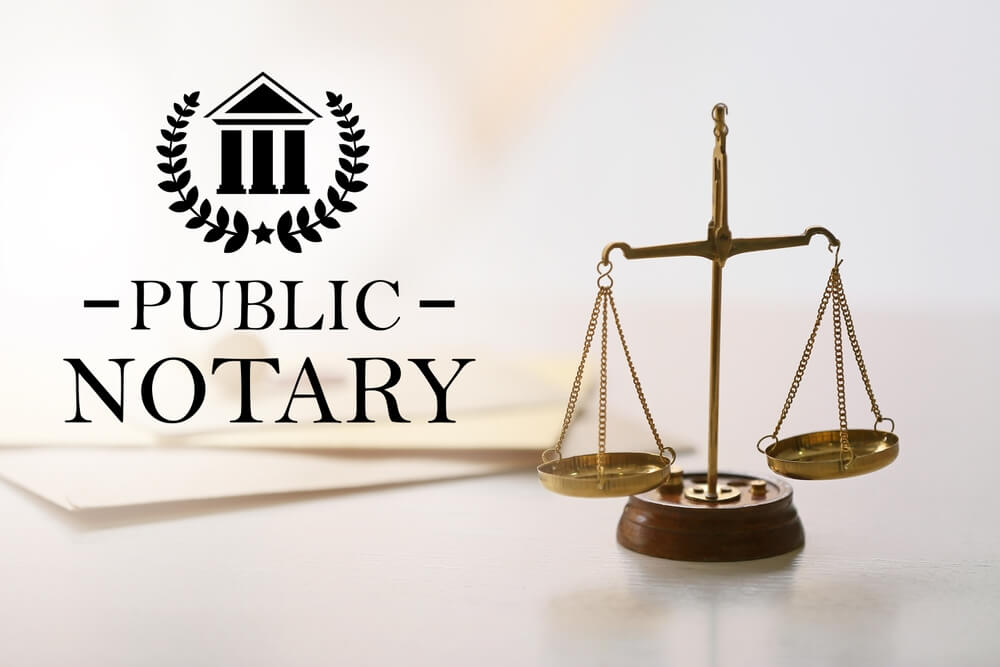Experienced Conveyancer: Navigating Property Transfers with Knowledge
Experienced Conveyancer: Navigating Property Transfers with Knowledge
Blog Article
Debunking Notarial Work: Streamlining the Role and Relevance of Notaries
Their duty, typically shrouded in secret for lots of, brings considerable weight in making certain the validity and honesty of critical documents. By unraveling the complexities bordering notarial methods and losing light on the value of their acts, a more clear understanding emerges of the essential role notaries play in supporting the fabric of legal and contractual contracts.
The Background of Notarial Work
The history of notarial job dates back to old worlds, where scribes played a vital role in videotaping essential details and confirming files. This led to the advancement of notaries, individuals appointed by the state to act as objective witnesses in lawful issues.
Throughout the Middle Ages, notaries got importance in Europe, with their features expanding to include preparing lawful documents, accrediting trademarks, and maintaining documents. The surge of worldwide profession additionally highlighted the importance of notarial job in validating agreements and agreements across borders.
In the modern age, notaries remain to play a vital role in legal and service purchases by verifying identities, confirming the credibility of documents, and avoiding fraudulence. Their function in licensing the validity of arrangements adds a layer of safety and trust fund to the ever-evolving landscape of business and legislation.

Responsibilities and Responsibilities of Notaries
Notaries play an essential role in validating the authenticity of files and the identification of signatures. One of their primary duties is to witness the signing of crucial records, such as wills, contracts, and deeds, to make sure that all events are entering right into arrangements intentionally and voluntarily.
Additionally, notaries are entrusted with administering affirmations and oaths, which are crucial in legal process and the execution of affidavits. They accredit duplicates of initial files, providing guarantee to institutions that the duplicates hold true replicas of the originals. Notaries have to maintain accurate documents of all deals they oversee to make certain transparency and accountability. In general, the tasks and responsibilities of notaries are essential in securing the stability and legality of different papers and deals.
Notarial Certificates and Signatures
Exemplifying precise focus to detail, notarial certificates and signatures function as necessary parts in verifying the authenticity of lawful records. Notarial certifications normally have vital info such as the day of registration, the names of the signatures, a description of the file, and the notary's main seal. These certificates offer a clear record of the notarial act, making certain that the a fantastic read record can be conveniently determined and traced back to the notary that oversaw the procedure.
Signatures play a pivotal duty in notarial job, as they represent the agreement and approval of the parties involved. Notaries meticulously witness the signing of documents to confirm the identity of the signatures and verify that they are authorizing of their own free choice. By fastening their official seal and trademark to the paper, notaries certify that the essential procedures have actually been complied with and that the record is valid and enforceable.
Basically, notarial certifications and signatures are the trademark of authenticity in lawful transactions, giving assurance to all celebrations entailed that the files are legitimate and binding.
Value of Notarial Acts

Notarization Process Explained
The registration process commonly starts with the specific offering the document to a notary public. Once the identification is verified, the notary guarantees that the specific authorizing the paper does so willingly and without any kind of coercion.

Verdict

Notarial certificates commonly have crucial information such as the day of registration, the names of the signatories, a summary of the paper, and the notary's official seal. These certifications provide a clear document of the notarial act, making sure that the file can be conveniently determined and traced back to the notary who looked after the procedure.
By affixing their official seal and trademark to the document, notaries accredit that the required procedures have actually been followed and that the document is valid and enforceable.
By confirming the identity of the signatures, verifying their desire to get in into the contract, and accrediting the day and place of the signing, notaries play an essential function in supporting the validity of lawful files.After the file is authorized, the notary will fasten their main seal or stamp onto the document.
Report this page